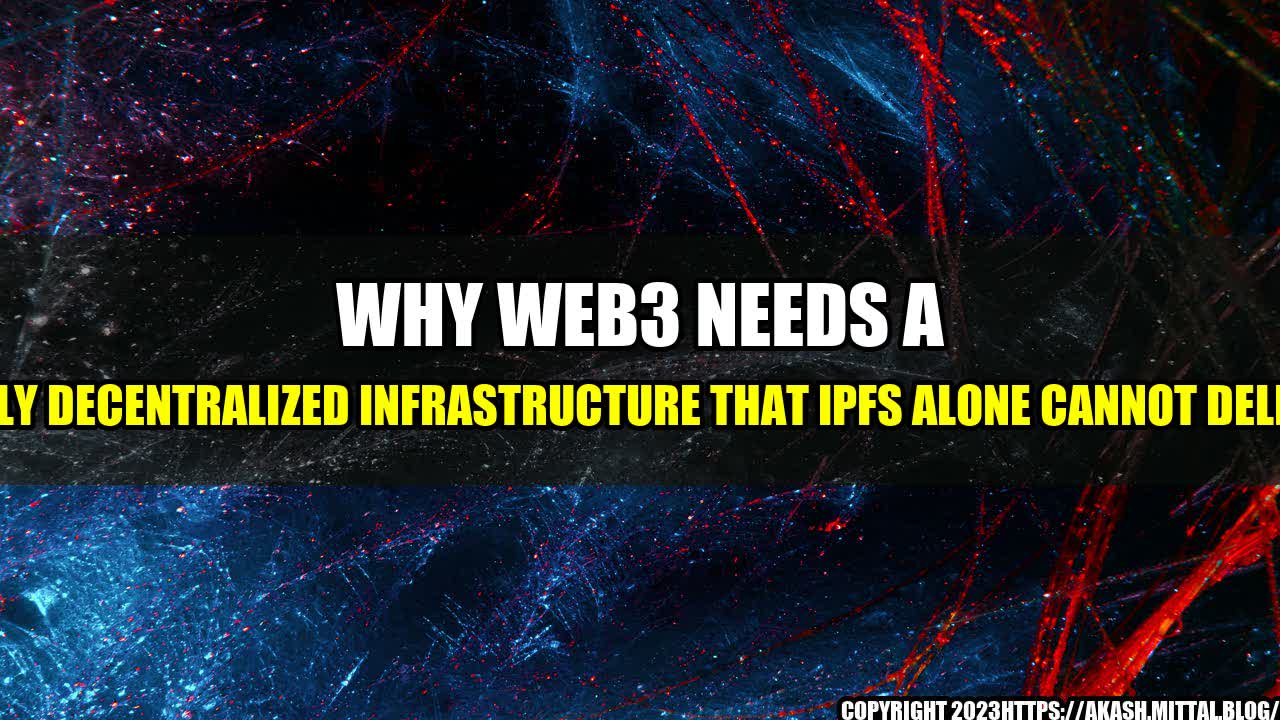Why Web3 Needs A Truly Decentralized Infrastructure That IPFS Alone Cannot Deliver


The internet is changing. The Web3 movement is striving for a decentralized web, where people own their data and don't have to rely on third parties to access information. However, creating a truly decentralized infrastructure for Web3 is no easy feat. While the InterPlanetary File System (IPFS) is a step in the right direction, it is not enough to meet all the challenges of a fully decentralized web.
As someone who has been experimenting with Web3 technologies for some time now, I have encountered several issues that highlight the limitations of IPFS and the need for a more decentralized infrastructure. In this article, I will share my experiences and explain why a truly decentralized infrastructure is crucial for the success of Web3.
Recently, I was browsing a popular social media website and found an interesting thread about Web3. The conversation was inspiring, and I wanted to learn more. However, I quickly realized that every link posted in the discussion was hosted on a centralized server. This meant that I had to trust the server owner with my data and trust that they wouldn't abuse their power.
This situation is all too common on the internet today. We are forced to rely on centralized servers to access information, even in discussions about decentralization. This is a serious issue that must be addressed if we are to build a truly decentralized web.
One of the most significant benefits of decentralization is increased privacy. When your data is stored on a decentralized network, it is not controlled by a single entity. This means that you don't have to trust a third party with your sensitive information. Decentralization can also increase security, as it is much harder for hackers to gain access to a decentralized network.
Another benefit of decentralization is increased resilience. Centralized servers are vulnerable to outages and attacks, which can cause significant disruptions. Decentralized networks, on the other hand, are much more resilient, as they are not dependent on a single point of failure.
While IPFS is a fantastic technology that has brought us closer to a decentralized web, it is not enough on its own. IPFS is still reliant on centralized servers for some tasks, such as bootstrap nodes and content discovery. Additionally, IPFS is still relatively young and untested, and it may not be resilient enough to meet the needs of Web3.
Another issue with IPFS is that it does not provide a decentralized naming system. This means that users still have to rely on centralized services like DNS to navigate the web. This is a serious problem, as it goes against the principles of decentralization.
Curated by Team Akash.Mittal.Blog
Share on Twitter Share on LinkedIn